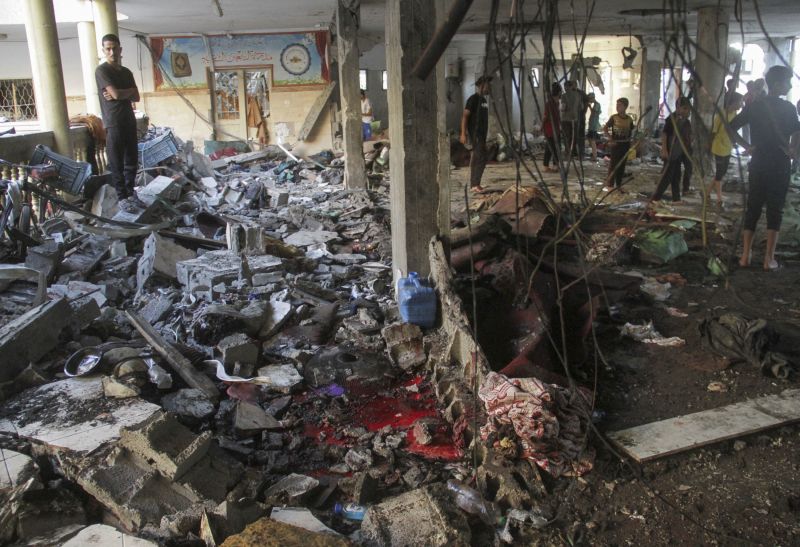The escalating situation between Israel and the United States has been a burning issue, with both nations preparing cautiously for a potential Iranian attack. This scenario unfolds as the diplomatic efforts towards securing a ceasefire in Gaza continue with remarkable intensity. The geopolitical state involving these three critical countries exemplifies a power-laden canvas woven with historical disputes, simmering tensions, and intense diplomacy.
Israel, an eminent US ally, has found herself the target of intensifying threats originating from Iran. The circumstances further necessitate that Israel remains on high alert and maintain robust defense strategies against any potential Iranian offensives. The Israel Defense Forces (IDF) have tightened their security protocols, endorsing surveillance and monitoring, in addition to reinforcing their missile defense systems. Notably, their preparations are not just limited to ground defenses; they also incorporate advanced tactics, providing defense to Israel’s airspace, maritime limits, and its cyber infrastructure.
Parallelly, the United States, as Israel’s longstanding ally, has also been preparing to counter any untoward incidents which could instigate violence in the region. Alongside reassuring its allies of a unified stand, the US has reinforced its military footprint in the region. The deployment of personnel and defensive tools in strategic locations indicates their readiness to retaliate if necessary. This move symbolizes US’s steadfast determination to safeguard its interests, as well as ensuring the security of its crucial allies.
While these tactical moves are underway, there’s an equally urgent and challenging task that has been pressing upon the international fraternity – putting an end to the long-standing, heart-wrenching Gaza conflict. Diplomatic efforts have been urgently amplified to secure a ceasefire in Gaza. Multiple nations have been influencing the dialogue, attempting to mediate peace and harmony between the disputing parties.
Key global leaders, including the United States, are engaged in hectic parleys, trying to reach a pivotal ceasefire agreement. The United Nations, European Union, Russia, as well as some Arab and Muslim nations have also been instrumental in fostering talks, showcasing unwavering commitment towards peace in the region. These diplomatic endeavors, enveloped within the United Nations Security Council’s conscientious attempts, have been essential in the quest for tranquillity in Gaza.
The diplomatic efforts do not merely advocate for a ceasefire; they also hope to create a conducive atmosphere for dialogue, which could potentially lead to a long-term resolution. The international community, diplomatic agencies, and peace advocates yearn for a cessation of hostilities and the establishment of a sustainable agreement that respects the sovereignty of nations, ensuring the welfare of all people involved in this conflict.
Thus, as Israel and the US brace for a potential Iranian attack, the duo along with various global powerhouses are simultaneously striding forward to secure a ceasefire in Gaza. These efforts may appear contradictory and challenge the socio-political equilibrium, but they underline the reality of a world where peace and conflict are two sides of the same coin. As nations skillfully negotiate these complicated terrains, the common goal remains a world where security, peace, and harmony prevail.




